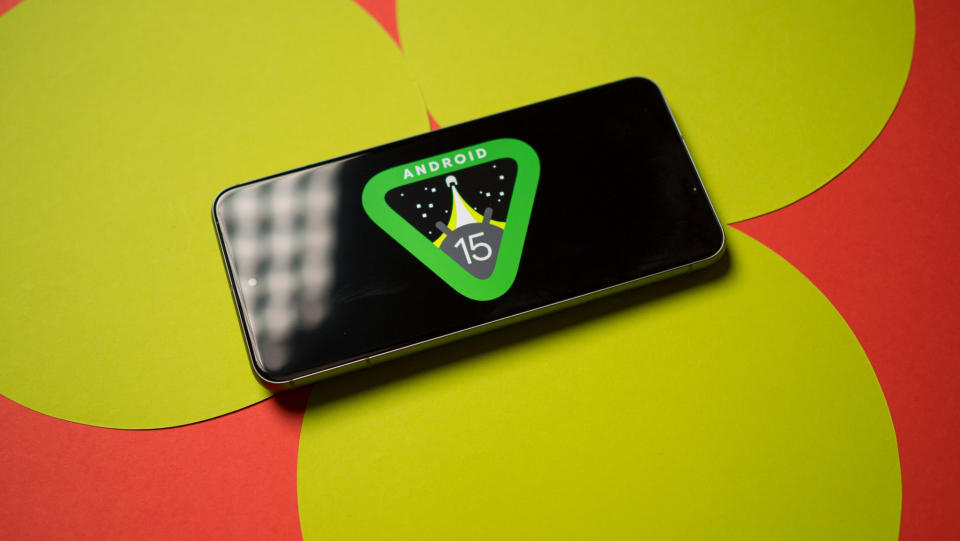What does it mean if both Google and Samsung's Android 15 updates are delayed?
When you buy through links on our articles, Future and its syndication partners may earn a commission.

What you need to know
Samsung reportedly delayed its One UI 7 beta rollout last month, and now, the delays are set to impact the upgrade's official rollout.
The new reports say that the rollout has been "delayed indefinitely" and there isn't even a concrete beta testing schedule for the Android 15-based One UI 7.
The news comes following an earlier report that Google is likely to ship the Pixel 9 series with Android 14, not Android 15.
Samsung typically releases new One UI updates, which are based on the latest version of Android, in the fall for its best phones. However, if the reports are any indication, Samsung's development and testing of One UI 7 haven't gone according to plan. We expected to see official information, and perhaps a beta, for One UI 7 at the end of last month. Instead, we got nothing, and now the situation appears to be getting worse.
As reported by 9to5Google, two reliable Android tipsters are now saying that One UI 7 is delayed, and the public rollout could be affected. Ice Universe on X (formerly Twitter) said "there are still no plans to launch it in the near future." By comparison, the One UI 6 beta rolled out to the Galaxy S23 series in the U.S. and a few other regions around this time last year.
Chun Bhai on X followed up with a post on Aug. 5 that described the One UI 7 update as having been "delayed indefinitely" as of the prior week. When we first reported on the apparent One UI 7 beta delay in late July, it was thought that Samsung was prioritizing One UI 6.1.1 development ahead of One UI 7. Or, that instability issues with One UI 7 were holding things up. Now, it's unclear what exactly is the cause for Samsung's delay.
The good news for Samsung is that it isn't the only company delaying the release of Android 15. Google's Pixel and earlier Nexus brands have typically ushered in new versions of Android. However, that might be changing this year. Reports indicate that the four new Pixel 9 series phones launching at the Made by Google event this week will ship with Android 14, not Android 15. That big update will come later in a shocking move, if the leaks are correct.
Of course, the delay somewhat makes sense for Google. Although the Android 15 beta is nearing the platform stability stage of development, we have to remember that the Pixel 9 series is launching a whole two months earlier than usual. That would explain why Android 15 isn't ready for the Pixel 9, Pixel 9 Pro, Pixel 9 Pro XL, and the Pixel 9 Pro Fold.
Still, this sets up a situation where both Google and Samsung are releasing their software updates on an abnormal timetable, and it's going to affect consumers and the market in a real way.
Key takeaways from Google and Samsung's schedule shifts

Google and Samsung both promised seven years of software updates with the Pixel 8 and Galaxy S24 series, respectively. Presumably, the companies will at least match that going forward. But what happens if Android 15 ships behind schedule? Google would need to give the Pixel 9 series eight full OS upgrades to match the support it gave the Pixel 8. There's no way calling the jump from Android 14 to Android 15 a month or two after the Pixel 9 releases as "a full OS upgrade" will fly well with buyers.
Samsung might not be affected by this predicament if it gets its One UI 7 development in order. One UI 6 debuted in October 2023, roughly three months before the Galaxy S24 series debuted in January of this year. As long as Samsung manages to get its Android 15-based update ready before the Galaxy S25 lineup launches, it could avoid chaos. It looks like Google might be in for a sticky situation, though.
For Google, the rumored choice to ship the Pixel 9 lineup with Android 14 is a big shift in strategy. The company's own Android phones have always been the standard for "stock Android," sometimes to a fault. But it's leaving that behind. Pixels are far from stock Android nowadays, since they're full of Pixel-exclusive features and now Google AI tools. Google is treating the Pixel brand like any other Android brand, and the culmination of that is breaking up the ties between new Android releases and new Pixel releases.
For Samsung, the delays to One UI 7 development appear to continue for a rough few weeks for the company's mobile and wearable teams. The company faced criticism for its new Galaxy Watch Ultra and Galaxy Buds 3 releases, which were not-so-subtly inspired by Apple products. More importantly, there are quality control issues, delayed release dates, and product availability concerns that are still being worked out. A significant delay to One UI 7 would be another black mark on Samsung's record.
Finally, the delays to both Android and Google's Android 15 updates underscore the feebleness of Android updates in general. We see missed targets and long waits for software upgrades in the Android world all too often. Recently, Motorola took a full year to give the Razr+ (2023) an Android 14 update. For some, the lack of consistency in Android updates is just another thing pushing them to the iPhone.
